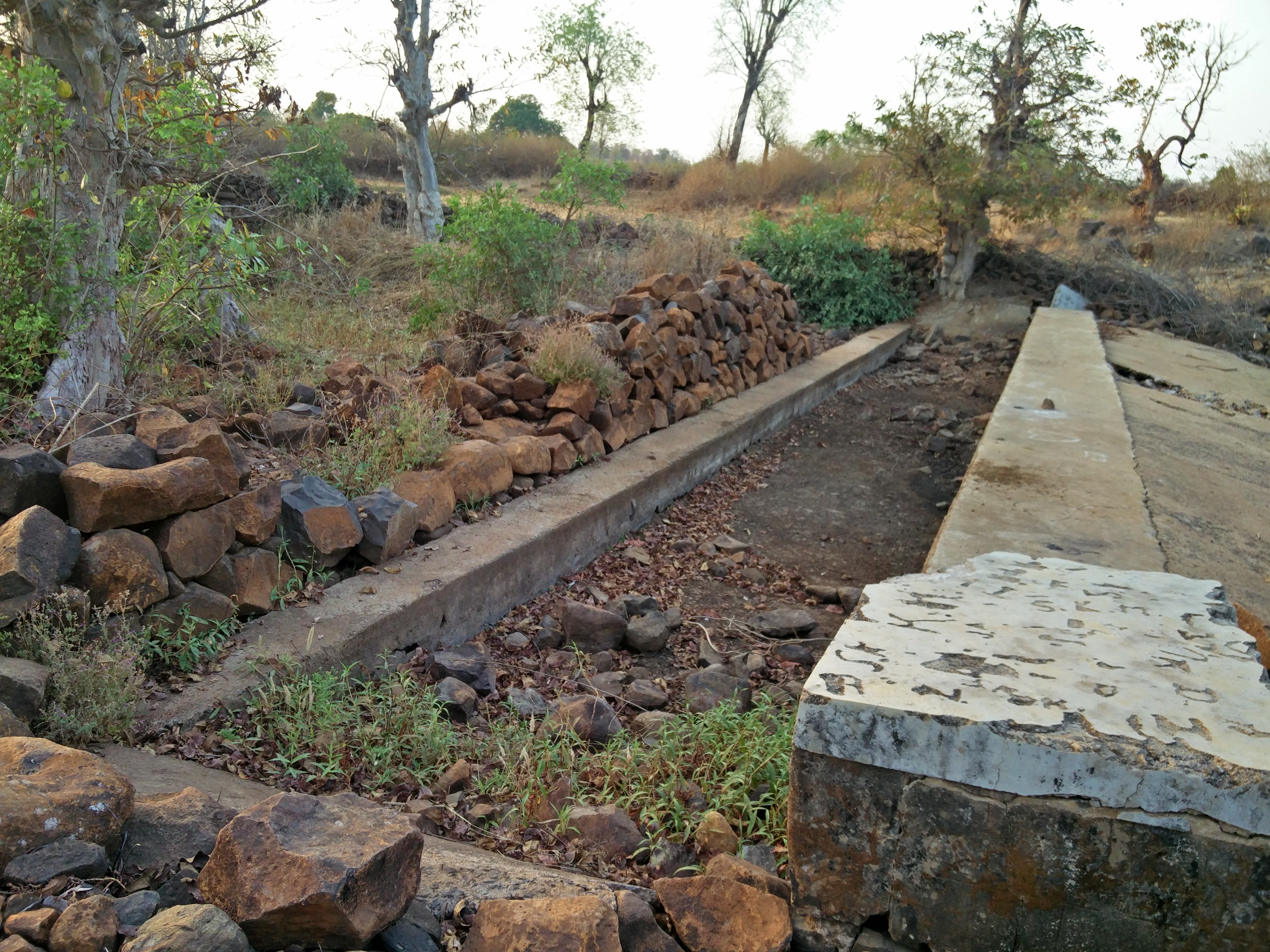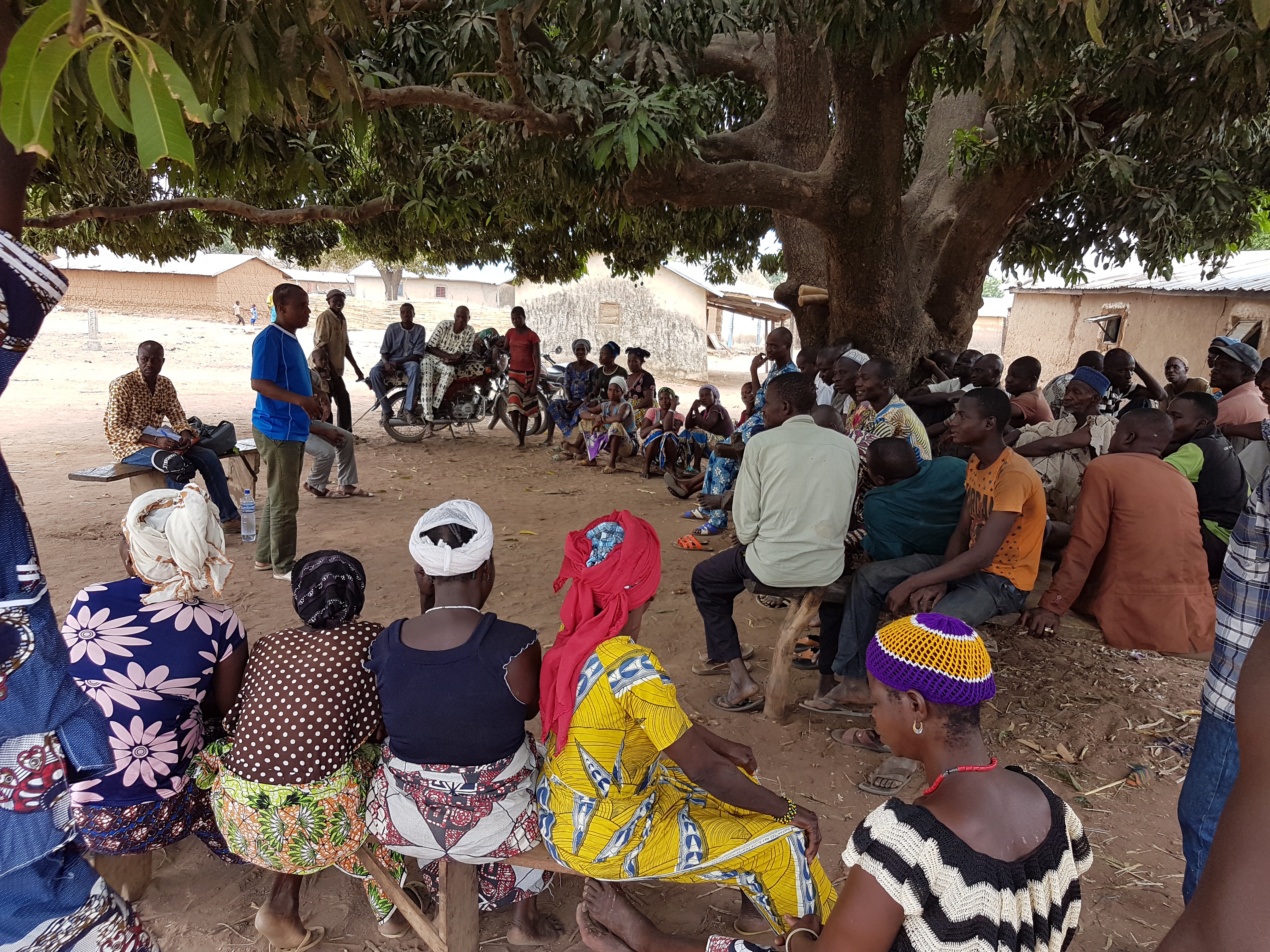


We need healthy soils to produce food, store carbon for climate change mitigation, and provide clean drinking water. Fortunately, there is no shortage of technologies to protect and restore soils. But despite growing investments in sustainable land management (SLM), smallholder farmers struggle to protect their soil. They lack secure land rights, are not reached by agricultural advisory services, and don’t have adequate access to farm inputs and knowledge. Locally driven, socially inclusive processes can help close these gaps. TMG has developed social innovations to overcome some of these challenges.
When we think of innovation in agriculture, we may think of tractors bringing exactly calculated amounts of fertilizer or water to the roots of neatly sown lines of crops. While these technical aspects are important, we need social innovations: creative, cost-effective and community-driven solutions to rural governance issues. Social innovations are “novel solutions to social problems that are more effective, efficient, sustainable, or just than present solutions”. In the case of SLM, farmers often don’t lack the technologies. They need secure access to the land they farm and support from effective agricultural extension services.
Agroforestry – the mixing of trees and crops –is widely promoted to preserve soils but difficult to practice for many farmers. Flora Ajwera, a GIZ-Soil Advisor in West Kenya explains why:
“Some of the project participants only get land for a season because they lease for one season or two. They will not take up the activity of planting trees. It´s labour intensive, you hire people to do it for you, so if you are not guaranteed, or it´s not your piece of land, then you would not fully implement that part of the project. You find that those beneficiaries would just do the bare minimum, not think in the long term.”
What Flora describes is symptomatic: when farmers don’t have secure access to land, they cannot invest in SLM. Securing access to land often is not really a question of legislation but of realizing it locally.
In close collaboration with partners, TMG Research has developed social innovations in Benin, Burkina Faso, Kenya and Ethiopia for some of these problems in their local contexts.
Securing land access for women at the household level
In countries like Burkina Faso, Ethiopia and Kenya, progressive national legislation exists to regulate access and user rights to land. But it does not always address insecure and unequal land access within households. Socio-cultural dynamics within families lead to unequal access to land, especially affecting women and youth. Laws alone cannot solve this problem, especially where local institutions lack the resources to implement the legal provisions. The social innovation developed by GRAF and TMG in the village of Tiarako in south-west Burkina Faso responds to the problem of insecure land access for women with a cost-effective process based on strong involvement of village institutions. Male farmers transfer land use rights to female household members on a voluntary basis after several awareness-raising and negotiation processes. The support and endorsement of municipal and traditional authorities has convinced the men in the village to engage in the process; now, more than 200 women in Tiarako have secure access to land.
Community-driven development of land lease guidelines
In western Kenya, land leasing is common for households with limited or no farming land. 38% of the households in the region depend on leased land for household food and cash needs. But land leasing is risky: landowners back out of informal lease agreements, conflicts arise over theft of or damage to crops without compensation. Existing legal provisions for leasing land are unclear; the official processes are complicated and costly for many smallholders. Local leaders often lack the resources to develop guidance on land leasing and solve conflicts.
In Kakamega County, TMG Research and the grassroot organisation Shibuye Community Health Workers facilitated the development of guidelines to secure land leasing arrangements. The process builds on broad participation of the community, local administration, county ministries of agriculture and lands, and the Land Control Board. The guidelines respond to the needs of the community and are widely accepted because the locals co-developed them. Flora Ajwera (GIZ) notes: “This will contribute to improving food availability in the area and employment”.
Community-based upscaling of sustainable land management
Our analyses of SLM programmes in Benin, Burkina Faso, Ethiopia, India and Kenya show that too often, SLM programmes do not reach beyond project beneficiaries. Model farmers play a crucial role in this: these farmers are tasked with the training of other farmers. In Benin, the social innovation of the Tem Sesiabun Gorado, addresses some common shortcomings of conventional farmer-to-farmer extension approaches. It builds on effectively engaging communities and entrusting them with ensuring to reach non-project beneficiaries. The community elects several community-based agents, the Tem Sesiabun Gorados, among their members. The elected farmers feel proud and at the same time indebted to return something to the community, in exchange for receiving training and inputs.
Co-learning to improve the provision of public extension services to smallholder farmers
During TMG-led multi-stakeholder consultations, farmers in western Kenya reported that agricultural extension services that provide farmers with information, training and inputs do not adequately reach especially resource-poor farmers. The major shortcomings included limited transparency, coordination and the lack of mechanisms that allow farmers to assess and give feedback on extension agents’ performance.
Leading stakeholders in the agriculture sector from the three western Kenyan counties of Bungoma, Kakamega and Siaya teamed up for a Peer-review for Extension Services: together, they examined their current extension delivery system and developed strategies to better reach the poor and mainstreaming sustainable land management. They recognised that a strong platform for farmers is needed to give farmers a stage for articulating their needs towards decision-makers. The Kakamega County Farmers Association (KACOFA) has committed to lead the process for a Governor’s Day with Farmers.
The 2030 Agenda of the UN and the African Union´s Agenda 2063 “The Africa we want” aim at eradicating hunger and poverty, halting land degradation and biodiversity loss. To reach such overridingthese global goals, we need to ground solutions in local processes. The social innovations in Benin, Burkina Faso and Kenya illustrate how locally led processes can support achieving these goals by closing implementation gaps and initiate change at the local level. They demonstrate how several goals can be addressed at the same time: with their inclusive approach, especially the rights of women are strengthened (SDG 5). At the same time, they contribute to reducing hunger (SDG 2), poverty (SDG1) and the degradation of soils (SDG 15.3).
This sites uses cookies. By continuing to browse your are agreeing to our use of cookies. Review our data privacy policy for more information.
accept


